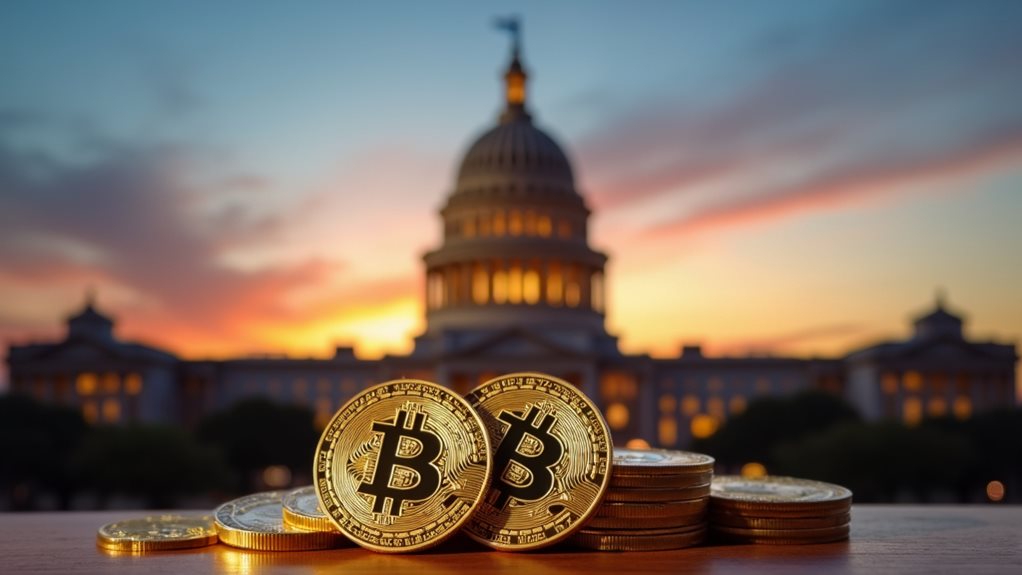Santander has moved beyond blockchain experiments to build serious crypto infrastructure that actually works. The Spanish bank launched One Pay FX, cutting cross-border payments from weeks to minutes, while implementing blockchain voting that counts shareholder votes in real-time instead of the usual bureaucratic marathon. They’re investing in stablecoins and crypto startups through strategic challenges, partnering with IBM and Hyperledger for enterprise-grade security. This isn’t just another corporate blockchain stunt—there’s substance beneath the surface.

While most banks were still scratching their heads about Bitcoin, Santander dove headfirst into the blockchain deep end. The Spanish banking giant didn’t merely dip their toes in the crypto waters—they cannonballed straight into building an entire blockchain lab dedicated to distributed ledger technology and smart contracts.
What started as a typical tech-focused experiment quickly evolved into something more practical. Santander shifted gears, moving from flashy blockchain demos to actually solving real banking problems. International trade finance, payment inefficiencies, the usual banking headaches—blockchain suddenly became their weapon of choice. With US crypto regulations now permitting 1,200 banks to offer crypto services, Santander’s early adoption appears particularly prescient.
The bank didn’t go it alone, either. They joined forces with heavyweights like J.P. Morgan and Northern Trust, forming blockchain consortiums faster than you could say “cryptocurrency.” The we.trade consortium became their playground for international trade, while Fnality offered another avenue for DLT-based payment systems. Smart move, really—why reinvent the wheel when you can collaborate?
One Pay FX emerged as Santander’s flagship blockchain service, promising faster international payments with improved transparency. No more waiting weeks for cross-border transfers to clear. The service targeted regions where traditional banking infrastructure resembled Swiss cheese—full of holes and frustratingly unreliable. The rise of e-money services like PayPal and Mercado Pago created intense competitive pressure that pushed traditional banks toward more innovative payment solutions.
One Pay FX slashed cross-border payment delays from weeks to minutes, targeting regions where traditional banking infrastructure resembled Swiss cheese.
But Santander’s blockchain ambitions extended beyond payments. They pioneered blockchain voting for their own Annual General Meeting, partnering with Broadridge Financial Solutions to create a digital voting registry. Vote counting went from weeks to minutes. Shareholders could actually see their votes matter in real-time instead of wondering if their proxy disappeared into some bureaucratic black hole.
The bank’s digital investment unit actively hunts for blockchain startups through their Santander X Global Challenge. They’re particularly interested in stablecoins and crypto-based financial products—essentially trying to bridge the gap between traditional finance and the wild west of cryptocurrency. The technical backbone relies heavily on IBM Blockchain Platform and Hyperledger Fabric technology to ensure enterprise-grade security and scalability.
Their blockchain voting pilots proved that distributed ledger technology could handle serious governance applications, not merely speculative trading. Transparency increased, trust improved, and manual processes got the boot.
Santander positioned blockchain as a transformative force for global money movement, betting that distributed ledger technology would eventually reshape how banks operate. Their approach combines practical applications with strategic partnerships, creating a blockchain ecosystem that extends well beyond their core business operations.









